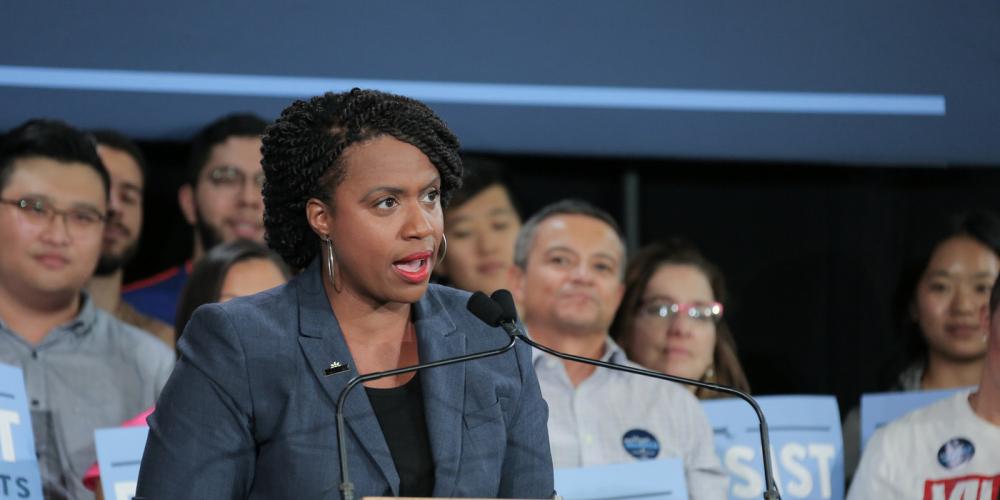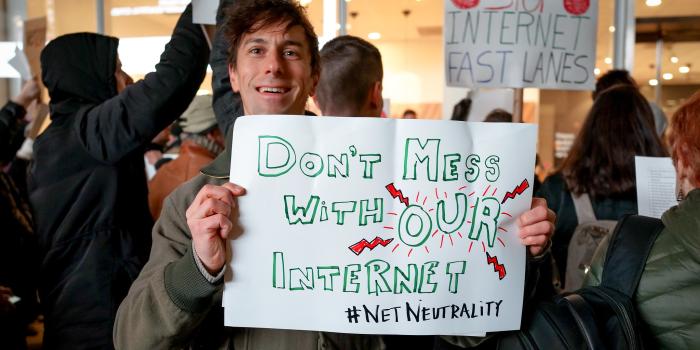So Many New Lawmakers Love Net Neutrality

On Thursday, the 116th Congress was sworn in, featuring more people of color and women than any other first-term class in our nation’s history. Among them ring strong voices calling for structural change, social and economic justice, and fierce resistance to the Trump administration’s toxic agenda.
Another striking thing about these new representatives? They strongly support an open internet.
Initial Free Press research shows that of the nearly 100 new House members, at least 70 percent of first-term Democrats have already publicly stated their support for real Net Neutrality. Some of them fought for Net Neutrality in previous elected positions — like Rep. Anthony Brindisi (NY-22), who as an assemblyman in New York pushed for a state bill to restore open-internet protections after the FCC’s misguided repeal.
Many of these new representatives — including Reps. Gil Cisneros (CA-39), TJ Cox (CA-21) and Lauren Underwood (IL-14) — spoke up to defend the open internet after the FCC voted to repeal the overwhelmingly popular 2015 Net Neutrality rules.
Reps. Antonio Delgado (NY-19) and Ayanna Pressley (MA-7) cheered the Senate’s decision to pass the Net Neutrality Congressional Review Act last May, and three new members who were sworn in early to fill vacant seats at the end of 2018 — Reps. Mary Gay Scanlon (PA-5), Joseph Morelle (NY-25) and Susan Wild (PA-7)— made use of their extra time to sign on to the CRA in the House.
Rep. Alexandria Ocasio-Cortez (NY-14) even joined the 2017 Net Neutrality Day of Action, urging visitors to her campaign website to fight for the open internet. Nearly a dozen newly elected members, including Rep. Ilhan Omar (MN-5), promised in their campaign platforms to fight for Net Neutrality.
Even though we’ve long known that Net Neutrality has strong bipartisan support outside of D.C., we’re used to seeing the national politics play out very differently, with congressional Democrats largely in favor of Net Neutrality and most Republicans opposed. Still, only a small handful of newly elected Republican representatives have publicly opposed restoring the open-internet protections.
Millions of people across the country are demanding real Net Neutrality, and this new Congress has gotten the message: If you don’t have anything nice to say about the open internet, don’t say anything at all.
Net Neutrality isn’t the only bright spot.
Nearly a quarter of the incoming class has raised closing the digital divide as a key issue. Rep. Deb Haaland (NM-1) named expanding broadband access as a priority in her platform. Rep. Abby Finkenauer (IA-1) highlighted the importance of internet access to local business, and Rep. Abigail Spanberger (VA-7) called it an essential service for free speech and everyday people. Other new members have taken stands for racial justice, online privacy and press freedom.
So while FCC Chairman Ajit Pai may be crowing over the last House’s failure to pass the CRA to restore Net Neutrality — and sprinkling in the same old investment lies he’s been telling for years — we are far from discouraged. The Net Neutrality CRA garnered bipartisan support in both chambers of the previous Congress, passing the Senate and winning the support of nearly 200 signers in the House.
Even though lawmakers were unable to restore the open-internet protections before time ran out on the CRA, they showed us that Team Internet is a strong and powerful grassroots coalition — and it’s growing.
Net Neutrality supporters across the country are speaking out, being heard and getting elected. The new wave of representatives in Congress is primed to join our longstanding champions and defend our rights to connect and communicate.
The fight for the open internet is far from over — and we’re going to win.





